Order early! Here are our recommended timelines for placing your order:
- For clients in Toronto, please place your order by Wednesday, May 14th to receive your order for the long weekend.
- For clients outside of the GTA, please place your order by Tuesday, May 13th to receive your order for the long weekend.
Save 10% before the offer ends, Monday May 12th at 11:59pm EST!
Discount automatically applied at checkout.
20 products
- Red Wine
- Primitivo
- Sustainable
- Dry
- Full Bodied
- 750ml
- 13.50% alc./vol
About the Winery
Cantine Paradiso
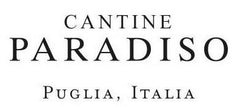
Cantine Paradiso is located is the South of Italy, in the region of Puglia. During the estate's 60-year history, the Paradiso family have always given the utmost importance to their close ties to Puglia's unique terroir, promoting the area's winemaking culture and constantly improving the quality of their production. The ongoing results confirm the choices made by three generations of down-to-earth vignerons closely bound to tradition and sensitive to innovation.
- White Wine
- Grüner Veltliner
- Biodynamic, Organic
- Dry
- 750ml
- 11.5% alc./vol
About the Winery
Matthias Hager
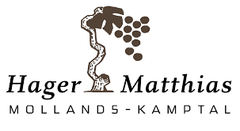
The Hager Matthias winery is located in the small village of Mollands in the Kamptal area of Lower Austria. Matthias took over the 12-hectare land and the family business at an early age. He aims to produce the best quality wine possible and to focus on being in balance with nature. The lands are cultivated according to biodynamic principles and are certified Demeter. Matthias has a vast knowledge about plants and insects, and about keeping the flora and fauna in harmony with the vines. Matthias Hager is one of the most experimental winemakers in the Kamptal region, Austria. He understood early how to work with different soil types from loess to clay. He established different product lines to highlight these differences: the blue one representing fresh, lively wines including Grüner Veltliner and Sauvignon Blanc; and the brown line gravitating towards more earthy, flavourful produce and the red line stands for no sulphites!
Press Reviews
Wine Align
92 points - Michael Godel
Juicy and extremely forthright for grüner veltliner with aromatic volume, a push of buzz, kinetic energy and acidity, finishing on a string with strong mocker flavours. Nothing subtle or understated here but more so a signature Austrian white that states its business, claims its territory and delivers waves of toothsome varietal style. Stands up to be noticed, and counted! Drink 2024-2027. Tasted October 2024.
91 points - David Lawrason
This is quite stylish, leaner and elegant - not as forward as many. There is also a more leesy note, with less obvious fruit. The honeyed, bready and peach notes remind me of pinot gris. It is light to medium bodied, quite firm, linear and very long on the finish. Some minerality here. Tasted October 2024
91 points - John Szabo, MS
Demeter-certified biodynamic, open and lively, energetic and vibrant, this is indeed one of the more lively grüner veltliners from the '23 vintage that I've tasted so far, also clean but with lees flavour lingering, supressing the exuberant citrus fruit. I love the balanced-crunchy acids and the high intensity and density flavours. Long, open and honest finish. Well done I have to say, ready to enjoy, but no rush. Tasted October 2024.
- White Wine
- Pinot Grigio
- Sustainable, Vegan-Friendly
- Dry
- Light Bodied
- 750ml
- 13% alc./vol
About the Winery
Vitas
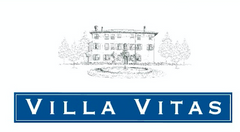
The Vitas Winery has been in the family since 1935, for four generations. It is located in the wine-producing area of DOC Friuli Aquileia, on a clayey-marly and sandy-calcareous soil (the so-called Magredi), one of the ingredients which, together with the influence of the sea and a friendly sun, create a perfect microclimate for vine-growing. A lot of importance is placed on conserving the environment and they use methods that protect their natural resources and the surrounding environment
- Rosé Wine
- Prieto Picudo
- Sustainable, Vegan-Friendly
- Dry
- Medium Bodied
- 750ml
- 13.5% alc./vol
About the Winery
Bodegas y Viñedos Pardevalles
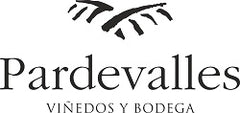 Pardevalles is recognized for being one of the driving forces behind the D.O Tierra de León, betting on the development of the indigenous grape varieties Prieto Picudo and Albarín Blanco. In 1949 Rafael Alonso founded Pardevalles continuing with the family tradition of growing grapes and making wine. The winemaking tradition in León goes back more than 400 years, famous for its centuries-old caves where wine was originally made.
Pardevalles is recognized for being one of the driving forces behind the D.O Tierra de León, betting on the development of the indigenous grape varieties Prieto Picudo and Albarín Blanco. In 1949 Rafael Alonso founded Pardevalles continuing with the family tradition of growing grapes and making wine. The winemaking tradition in León goes back more than 400 years, famous for its centuries-old caves where wine was originally made.The vineyards of Pardevalles are located between 750 and 820 metres above sea level, in an area with a Continental climate. They grow in poor, rocky alluvial soils which helps maintain the freshness in the wines. The philosophy of the Estate is grounded in making wines which express the character and identity of their origin, with a deep respect for the earth and the indigenous varieties of grape, combining tradition, innovation, and hard work.
Press Reviews
WineAlign
90 points - Sara d'Amato
Pours a luminous, deep pink, this rosada from Leon is made entirely of the indigenous prieto picudo grape, more typically a blending variety with dark skins and often resulting in wines with licorice-tinged black and red fruit. With youthful exuberance and potency, this salty and succulent expression features a wealth of lightly candied red berries, slippery tannins and a touch of welcome bitterness that contributes balance and a sensation of freshness. Best to enjoy in its youthful condition but it has the concentration for another year or two of aging. Tasted February 2024.
- País
- Sustainable
- Dry
- Medium Bodied
- 750ml
- 13% alc./vol
About the Winery
Garage Wine Co.

Garage Wine was literally started in a garage in 2001, by Etobicoke expat Derek Mossman and his wife Pilar Miranda. Since then, the dynamic duo handcraft wines from a series of individual vineyards located in the Maule and Itata Valleys, in the south of Santiago, Chile.
Garage Wine Co makes wines from a series of individual parcels, small lots / bottlings of 8-22 barrels that include a series of dry-farmed field-blends of Carignan, Garnacha, Monastrell, País, Cinsault and Cab Franc grown on pre-phylloxera rootstock with small farmers in the Maule and Itata. Each wine is from a 1-2 hectare parcel in a different place.
Over the years working in the community they have raised a veritable posse of vineyard hands whose skills are working the vineyards the old way / the traditional way– originario. The vineyards are on the old coastal range of mountains closer to the Pacific and have granitic soils with cracks for roots to get deep down into.
When GWCo. speaks of the provenance of these wines they mean more than just the geological terroir. Derek and Pilar think the farming practices that have evolved over generations have as much to do with the wines’ personalities as the soils. All the wines are made by hand with native yeasts in small tanks, punched down manually and pressed out in a small basket press. GWCo is still very much a DIY operation and we still tow much of the crop back to the winery in trailers behind trusty pickup trucks 2,000 kilos at a time.
Press Reviews
WineAlign
91 points (2021) - Michael Godel
The 2018 país was, and I quote Garage Wine Company founder (and Oakvillean) Derek Mossman Knapp ”A wine that rose from the 2017 bush fires, quickly having ascended out of the ashes as something resurrected and reinvented.” The method is pressing whole clusters with stems and a co-fermented (2018) collection of país, stacked with carinena, one on top of the other. Now in 2021 it’s all about the mission grape, survivor and revivalist, the stacks of fruit like lyrics, on repeat. If you say the mantra often enough it becomes bible and this grape made in this way is the lifeblood and soul of Chile’s Secano Interior Cauquenes. A very instrumental red wine, comfortable, of relaxed warmth and lack of pressure that you would only expect at home, with people you love. “People can you feel it? Love is everywhere.” Drink 2023-2026. Tasted February 2023.
90 points (2021) - Megha Jandhyala
Born during the pandemic, the Garage Wine Company’s old-vine project is devoted to reviving previously-neglected old vines and supporting local farming communities. Founded by Mossman Knapp and Pilar Miranda, it is based in Maule, home to many dry-farmed, family-owned, old vineyards. Only about 5000 bottles of this old-vine país were made using traditional methods, including traditional dry-farming and hand-harvesting in the vineyards, and manual punchdowns and native yeast in the winery. It is a fresh, light, cheerfully fruity, wine, clean and uncluttered, with a down-to-earth, guileless charm. Red berries and herbs are joined by notes of pepper and wildflowers. The palate is medium-bodied and soft, with fine tannins, tart acids, and very good length.
- White Wine
- Sauvignon Blanc, Sauvignon Gris
- Organic, Vegan-Friendly
- Dry
- Medium Bodied
- 750ml
- 13% alc./vol
About the Winery
Réva
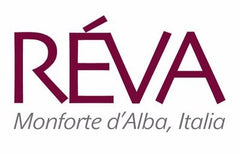
Réva is a winery based in Monforte D’Alba, within the Langhe area, in Piedmont, west northern Italy. Its aim is to bring the most brilliant young people of the area together, entrusting them with the task of expressing themselves in the most creative and professional way possible. This is Réva’s Wave, a dynamic team that represents the new Langhe generation, in constant communication with tradition, without the fear of reinterpreting it.
Today the vineyard sites which spread over 4 villages, Monforte D’Alba, Serralunga D’Alba, Novello and Barolo are all managed directly with the entire agronomic work done manually. Strong sustainable vineyards conduction, certified organic, they believe that their biggest challenge is not inventing anything but just define and express the beauty of the land where they live.
Behind every glass of wine there is an expression, expression of terroir, varietal, the varietal is for them everything, indigenous, they speak of the land and, last but not least, passion for what they do. Simply as that.
Press Reviews
Wine Align
92 points (2022) - Michael Godel
The name is Grey, representative three ways, of Réva’s Bianco label, the earth as its life giver and a sauvignon blanc meeting sauvignon gris growing from the Langhe “formation lequio.” In other words ancient Serravallian terroir come into being some 12 million years ago. Translates today as clay, limestone and fossil, adding up to and defined as grey marl. Just smells like wet stones, rich in mineral, as if after a rain. A place where ripeness means abundant and substantial fruit in cohorts with and defending the “sottosuolo” of elements below to do more than merely simulate but actually effect an authentic Langhe experience. Drink 2025-2030. Tasted May 2025
91 points (2022) - David Lawrason
This is a blend of sauvignon blanc and sauvignon gris - a highly unusual wine for the Langhe region, but a specialty of the youthfully re-imagined Reva estate in Montforte. It is an impressive, full flavoured, generous and well balanced wine with lifted aromas of guava/lychee, lemon and fresh herbs. It is very bright with lively acidity, considerable warmth and juicy, tart-edged finish. The length is excellent. A bit aggressive in the end so chill well. Tasted May 2025
91 points (2022) - John Szabo, MS
Réva's Langhe Bianco "Grey" is composed of 70% Sauvignon Gris and 30% Sauvignon Blanc, related but considered separate varieties, the former less effusively aromatic than the blanc version. It pours a pale-medium yellow gold colour, and offers maturing, bruised pineapple and binned apple aromatics in an advancing style, purposely no doubt considering Réva's commitment to natural winemaking and low intervention. It's also notably herbal, like dried mint or cold mint tea, fresh celery and other non-fruity components on a fairly rich and full-bodied frame with palpable extract - tannins - that provide some grip. Despite the advancing flavours, I'd recommend another year or two in the cellar for the palate to smooth out, and since it's not about the fruit in any case, those flavours will continue to develop in the savoury spectrum. Length is very good. Tasted May 2025.
- White Wine
- Medium Bodied
- 750ml
Press Reviews
Wine Align
92 points - John Szabo, MS
Old vines, rolle, roussanne and grenache blanc, this is subtle and remarkably fresh white wine from the Languedoc, especially considering the hot and complicated 2023 vintage, here registered at just 12% alcohol, but it's not one of those simply early-picked, hot climate whites without flavour. The magic of balanced, old vines, resilient and capable of even quality year after tear. There's pretty extreme sapidity on offer here, a real saline blast of limestone and blinding light, and terrifically lingering finish. One of Brouca's best whites yet, drinking now but no rush - would be interesting to follow this over the next half dozen years. Tasted December 2024.
91 points - Michael Godel
Normandy-born Frédéric Brouca is one of southern France’s experimentally sound winemakers, a master of wine-styling disguise and blender of reds, whites, Rosé and also those suspected of being Rosé. Here he takes on the IGP of Hérault with a three-part blend of grenache blanc, roussanne and vermentino that speaks to the earth beneath the winemaker’s feet. Do not come here looking and surely not demanding fruit. Yes the grapes are the source, are shown the ropes and work to address our wishes but fruitiness is not the matter at hand. Elements of the earth, especially silt and salt to the “soult.” That being the core and soul of what matters in making and delivering honest wine. That this is and in a most unintentionally intentional way. Drink 2024-2027. Tasted December 2024.
91 points - Sara d'Amato
Schist-grown rolle meets roussane and grenache blanc in this cheery blend from the Faugères region of the Languedoc where French sommelier and self-taught winemaker Fréderic Brouca and his Canadian wife Elaine have set down some roots. Brimming with notes of yellow apple, lemon curd, chamomile, wildflower, lemon drop, sea salt, and mineral, this elegant and effortlessly drinkable white is notably complex and authentic. Cleanly made in a low-interventionish fashion using wild yeast and no filtration. Enjoy now in its youtful and expressive condition or hold another 2-3 years in bottle. Certified organic and vegan-friendly. Tasted December 2024.
- Red Wine
- Corvina, Rondinella
- Sustainable, Vegan-Friendly
- Dry
- Full Bodied
- 750ml
- 15.5% alc./vol
About the Winery
Ca' del Monte

Ca del Monte is situated on the hillsides overlooking the village of Negrar, in the heart of Valpolicella. It has belonged to the same family for generations, and is now run by brothers Umberto and Giuseppe Zaconte. There’s nothing fancy about this place. The house and winery are modest - and are attached to a 17th century monastery.
The estate is approximately 50 acres, and its 15-65 year old vines lie on gentle slopes at 800-900 meters. They grow on four soils including clay, limestone, red volcanic soil with red stones, and “Toar,” a green volcanic soil. The vineyards of Ca Del Monte are planted with 20-40 year old vines of Corvina, Rodinella and Molinara grapes that are planted in poor soils that stress the vines and nurture the fruit. All of the farming is done traditionally and non-certified organic.
- Orange Wine
- Ribolla Gialla
- Biodynamic, Natural, Organic, Vegan-Friendly
- Dry
- Medium Bodied
- 750ml
- 12% alc./vol
About the Winery
Štekar
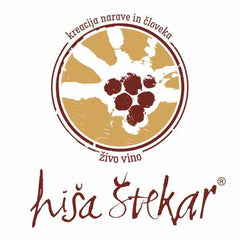
The Štekar family has been growing grapes in Goriska Brda since 1985. With 6 acres of vines planted in the stunning hills of western Slovenia, along with cherry orchards, Jure Štekar has committed to make wine the way his grandfather Emil taught his father: respecting tradition and avoiding invasive technologies.
Certified organic since 2006, Jure likes to play with long macerations, spontaneous fermentations and tiny SO2 amounts. His goal is to produce genuine wines that tell the story of his land and family.
Press Reviews
Jancis Robinson
17.5
Deep gold, pungent, punchy. A fickle nose that catches a flicker of Roman drains one moment and then floods the two feet above the glass with orange blossom and quince. So salty your mouth will pucker and then you get the sweetness and citrus oils and herbal bite. It's twists and twists of clementine peel and tangerine and sweet lime. It's oregano and kumquat, pink salt and sour cream. It's punky, silk-and-handcuffs, addictive. Jure Štekar's wines get more and more beautiful every year.
- White Wine
- Chardonnay
- Organic
- Dry
- Medium Bodied
- 750ml
- 13% alc./vol
About the Winery
Domaine du Château de La Chaize
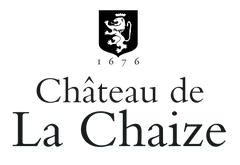
Château de La Chaize is among the oldest, most historic estates in Burgundy’s Beaujolais region. Cared for by the same family for nearly three and a half centuries, the estate has been passed on to new owners, the Gruy family, who are equally committed to managing the estate with the utmost care, while implementing an ambitious environmental plan. Among the many initiatives is the conversion of all vineyards to organic farming, the adoption of precision viticulture, reducing carbon their carbon footprint, and recycling every by-product from viti- and vinicultural activity, to achieve zero waste.
Founded in 1670 by the seneschal of Lyon François de la Chaize d’Aix, the main Château de la Chaize building and gardens were completed by Jules-Hardouin Mansart and André le Nôtre, respectively architect and gardener of the Château de Versailles. Château de la Chaize is among the oldest, most historic estates in Burgundy’s Beaujolais region. Boasting over 250 acres of vineyards, it is also one of the largest. It is today considered one of the most innovative estates in Burgundy. Among its forward- thinking practices is the adoption of eco-friendly farming techniques, commonly referred to as Agriculture Raisonnée. Chemical treatments have been reduced to a strict minimum, for example, and the growing of grass between rows has been re-introduced to enrich the soil and reduce erosion.
Press Reviews
Wine Enthusiast
90 points
This Beaujolais estate also has vines in Pouilly-Fuissé to the north. The wine has good minerality as well as ripe apple and spice. Lightly wood aged, it is a rich, structured and fruity. Drink the wine from late 2020. - Roger Voss
- White Wine
- Grechetto
- Organic
- Dry
- 750ml
About the Winery
Cantina Cenci
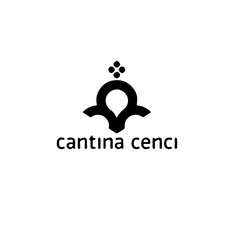
The Cenci Family has been dedicated to viticulture for over four generations, continuing to cultivate the vine with deep respect for the traditions and unique characteristics of the land once owned by the Olivetan monks. In the early 1950s, Mario—an enlightened and forward-thinking agricultural expert, and grandfather of Giovanni—selected clones of Grechetto, Sangiovese, and Malvasia from vines once cultivated by the Olivetan monks and traditionally grown intertwined with mulberry trees. He planted the first vineyards of the estate, and the wines made from those grapes were of such outstanding quality that he secured a long-term contract to supply Grechetto and Sangiovese in traditional flasks to the restaurant of a prestigious hotel in Perugia.
In 2012, following two years of renovation of the farmhouse, the new winery was inaugurated under the guidance of Mario Cenci, architect and brother of Giovanni. Thanks to cutting-edge equipment and winemaking techniques—combined with deep respect for tradition and the passionate leadership of Giovanni Cenci (viticulturist, enologist, food biotechnologist, and sommelier)—Cantina Cenci today produces wines appreciated by a niche audience of expert consumers.
The perfect balance between tradition and innovation has shaped a strong and distinctive brand identity.
- Red Wine
- Dolcetto
- Biodynamic, Natural, Organic, Vegan-Friendly
- Dry
- Medium Bodied
- 750ml
- 13% alc./vol
About the Winery
Punset

While the vineyards that form Punset have been farmed by the Marcarino family for generations, it is truly thanks to Marina and her incredible energy that the estate is how it is nowadays. In the 1980s, she decided to pursue organic farming – a demanding choice that was rewarded by becoming the first estate to receive the organic certification in Italy. Her passion for the soil and the environment led her to embrace biodynamics and the agronomic philosophy of Manasobu Fukuoka. From one of the healthiest vineyards in Italy, Marina crafts wines that brim with life, energy, and pure terroir.
Known for the very first certified organic Barbaresco of Italy, Marina continues to show the world that you can preserve tradition and think of the future simultaneously.
- Red Wine
- Tempranillo
- Sustainable
- Dry
- Residual Sugar: 2.00 g/l
- Full Bodied
- 750ml
- 14.50% alc./vol
Press Reviews
James Suckling
93 Points - Zekun Shuai, Senior Editor
Fine oak spices and cocoa powder to the ripe cherries, cassis, black cherries and warm stones. Full-bodied and polished on the palate with tightly wound tannins that seep through the compact fruit. Good balance between tight structure and fruit density. From organically grown grapes. Drinkable now, but better from 2024.





















